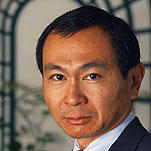Globalized Islam and What To Do About It

Francis Fukuyama was in Toronto today, delivering the second annual Seymour Martin Lipset lecture on democracy. As I listened to him I was surprised to find myself in almost complete agreement. He’s a controversial thinker, and I expected to hear some serious disputes during the question period, but it seems that he must have convinced most other people too, for only one questioner took exception to his main argument.
The talk was titled “Identity, Immigration, and Liberal Democracy,” but it really dealt almost entirely with the problems arising from the immigration of Muslims to Europe and North America. He considers Canada the birthplace of modern “identity politics,” in that this society invented multiculturalism. However, today multiculturalism is a more ominous phenomenon in Western Europe than in Canada or the United States.
Fukuyama expressed admiration for the philosopher Charles Taylor’s analysis of identity. He called it a voluntary, internal experience rather than a socially created one. That is, we each have an inner self that is somehow more valid than the external one we assume for the sake of getting along socially. Nevertheless, we do require social recognition for our identity, which is connected in most cases with our membership in various social groups. Thus there arises a dispute over the obligation of the state to recognize “group rights.” This claim can take the form of claims for ethnic communities’ rights, for gay rights, for women’s rights, and so on. For example, the conflict over gay marriage is about the claim for marriage between homosexuals to be accorded status equal to that of heterosexuals. In the United States, there have been political demands for affirmative action and for bilingualism as the right of Hispanic Americans. In Canada, it was the Quebecois who first demanded equal rights for their group.
In a tolerant liberal democracy, such claims can be accepted without much difficulty, says Fukuyama. Both the United States and Canada have made it easy for immigrants to integrate gradually, without much pressure. However, the European case is a little different. Although most Europeans distinctly dislike flag-waving nationalism and share the aspiration to become a unified Europe, in reality everyone knows that his or her main identity is French, German, or Spanish, and so on. Immigrants cannot easily acquire such an identity. Indeed, until five years ago, any foreigner of German ancestry could claim citizenship in that country (even if she did not speak German), whereas a Turk might live most of his life in Germany without ever becoming eligible for citizenship, let alone acquiring German identity. In the Netherlands, the distinct communities are “pillarized,” so that each “pillar” has its own schools, churches, trade unions, and so on. One can live comfortably within one’s own pillar because of the pervasive tolerance of the culture.
But now large numbers of Muslims are present in Europe, and they expect to retain their own group identities and group rights, without extending tolerance toward others. Theirs is a new kind of Islam. Where their parents practiced a religion that was tied to a local community, the new “globalized” Islam is trans-national and rooted nowhere in particular. It is more ideological and, hence, more conducive to extremism.
The source of terrorism today is in Europe, not in the Middle East. About 15 percent of Europe now consists of poorly integrated immigrants, and they pose a new challenge. Since the murder of Theo van Gogh by a fundamentalist Muslim, public opinion in the Netherlands has changed completely, so that there is a new conviction that the integration of immigrants is an urgent necessity. For example, if a Muslim man sends to Pakistan, say, for a bride, she may not immigrate unless she is at least 21 years old, with a high school education and fluency in the Dutch language. Fukuyama sees some of the new regulations as excessive, but on the whole he regards them as necessary and justifiable. For example, he does not oppose the new law in France prohibiting schoolgirls from wearing hijab. The success of assimilation depends on the rate of intermarriage, he says, but the whole point of wearing the hijab scarf is to identify young Muslim women as out-of-bounds for all males except those of their own community. In a larger sense, then, Europeans must become more pro-active in creating national identities that are inclusive and into which all immigrants will be expected to assimilate.
Fukuyama’s argument makes considerable sense, though it hinges on the assumption that Islamic immigrants are markedly less tolerant or ready to assimilate than earlier waves of immigrants. He did not try hard to prove the point, perhaps because he thought it was too obvious to require proof. And he may be right. After the talk there was a reception and I chatted with a political science graduate student who has been working on a world-wide survey of cultural identity. He told me that Americans and, to a slightly lesser extent, Canadians are the people most likely to claim that they are primarily loyal to the world, rather than to their own country or locality. On the other hand, in the Middle East, very few people express identification with their nation or with the whole world; instead, about 80 percent say that their main identity and loyalty are to Islam.



0 Comments:
Post a Comment
<< Home